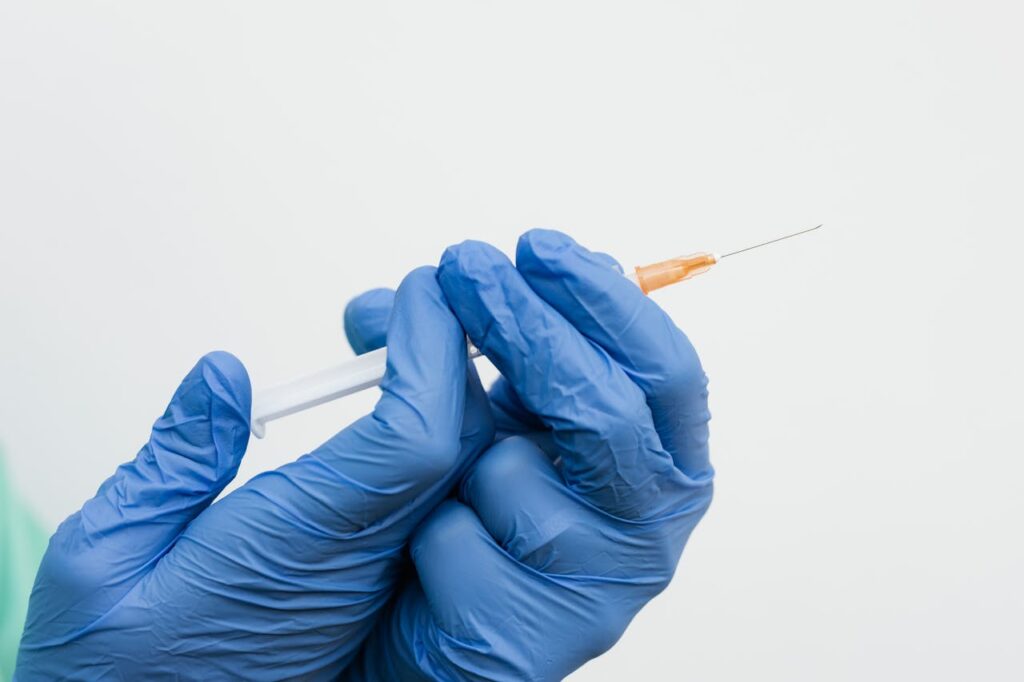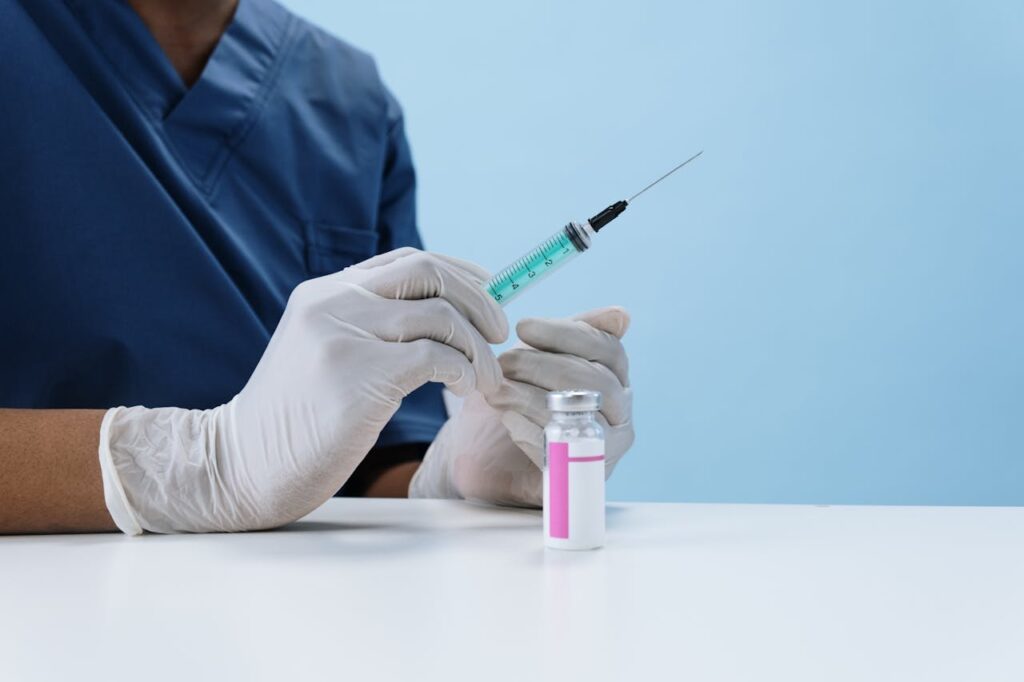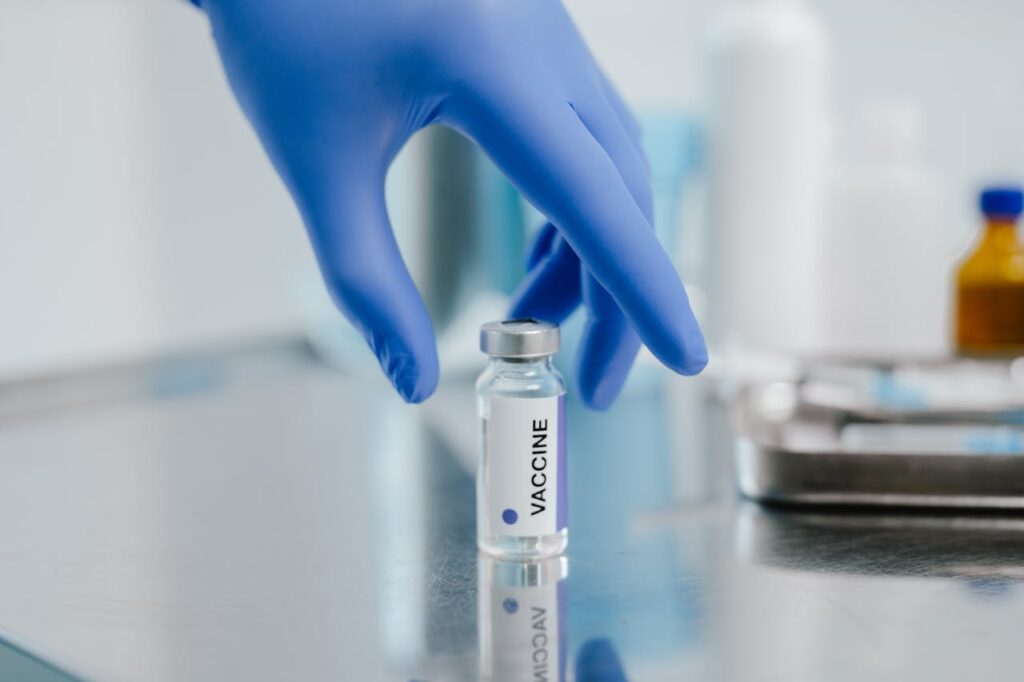What is rabies?
Rabies is a deadly viral infection (a lyssavirus) that attacks the brain and spinal cord. Any mammal can get it, and humans are infected most often after a bite that allows virus-laden saliva to enter the body. After entering through a wound, the virus typically replicates near the site, then travels along the nerves toward the brain. Once it reaches the central nervous system and symptoms begin, rabies is almost always fatal despite medical care, so prevention and rapid action after any exposure are crucial.
The incubation period (the time from exposure to symptoms) is usually 1–3 months but can be as short as about a week or as long as a year. How long it takes depends on factors like the location and depth of the bite (bites on the face and hands tend to lead to faster illness), the amount of virus, and the person’s immune status.
What causes rabies?
The rabies virus spreads through the bite or scratch of an infected animal. Although bites are the most common source, even small scratches or exposure to saliva on open wounds or mucous membranes can pose a risk. The virus travels through the nerves to the brain, where it causes severe inflammation and, once symptoms appear, is almost always fatal.
Although rabies is not widespread locally, bats can carry Australian bat lyssavirus, which is closely related. The only known carriers of rabies-like viruses in Australia are bats, including:
- Flying foxes (e.g., black flying fox, grey-headed flying fox)
- Little red flying foxes
- Microbats (small, insect-eating species found across Australia)
All bat species in Australia are considered potentially infectious, even if they appear healthy. Bites and scratches from these animals should be treated seriously. In contrast, people travelling to rabies-endemic countries should also be cautious around other common rabies vectors, such as dogs, cats, monkeys, foxes, raccoons, jackals, and mongooses. Anyone at higher risk, including wildlife workers, bat handlers, and certain travellers, should consider pre-exposure vaccinations for rabies.
Who should get the rabies vaccine?

Rabies vaccination is recommended for people at higher risk of exposure to the rabies virus. The need for vaccination depends on your activities, location, and contact with animals that may carry the virus.
Short-term travellers to high-risk areas
Even if you’re only travelling for a short time, you may still need the rabies vaccine. If your trip includes rural areas, limited access to medical care, or close contact with animals, the risk remains. Short-term exposure can still lead to a bite or scratch from an infected animal. Vaccination helps protect you in case treatment isn’t available right away.
Long-term travellers
If you’re staying overseas for more than a month, especially in places where rabies is still present, you may have a higher chance of coming into contact with infected animals. The longer the stay, the greater the risk, particularly in remote areas with poor access to healthcare.
Adventure and outdoor travellers
Hiking, cycling, camping, and other outdoor activities increase your chances of encountering wild or stray animals. In countries where rabies is present, even a quick interaction can lead to exposure. Pre-exposure vaccination gives you protection before contact happens.
Volunteers and aid workers
If you’re volunteering in communities or working in animal shelters or clinics, your role may involve close contact with unvaccinated animals. Rabies vaccination is recommended for those taking part in aid work, especially in areas where animal control is limited.
Children travelling to high-risk areas
Children may play with animals or fail to report a bite or scratch. Their smaller body size also means the virus can spread faster. If you’re travelling with children to a country where rabies is a concern, vaccination should be considered.
Animal and wildlife workers abroad
Anyone working with animals, such as vets, carers, researchers, or wildlife volunteers, should be vaccinated before travel. These roles involve frequent, hands-on contact with animals that may carry rabies or other infectious diseases.
What to do after a bite or scratch?
If you’ve been bitten, scratched, or exposed to an animal that may carry rabies, act immediately. Rabies is a medical emergency, and fast response is critical to prevent infection.
1. Clean the wound thoroughly
Wash the affected area with soap and water for at least 15 minutes. This helps reduce the amount of virus at the site.
2. Seek urgent medical care
See a doctor or go to the nearest medical centre as soon as possible. Even if the bite or scratch seems minor, you still need professional assessment.
3. Assessment of rabies exposure
Your healthcare provider will assess your risk based on:
- The type of animal involved
- Where the incident occurred
- The nature of the contact (bite, scratch, saliva exposure)
- Your rabies vaccination history
4. Start post-exposure vaccination
If there’s a risk of rabies, you will need a course of rabies vaccine. If you haven’t been previously vaccinated, you may also need a dose of human rabies immunoglobulin.
5. Complete the full treatment course
Follow the full schedule of vaccine doses to ensure full protection. Missing doses may reduce the vaccine’s effectiveness.
Prompt action helps protect you against rabies. Do not wait for symptoms, they usually appear too late for treatment to work.
Pre-exposure rabies vaccination

Pre-exposure rabies vaccination is recommended for people at higher risk of contact with the rabies virus or Australian bat lyssavirus. This includes travellers to rabies-affected regions, vets, animal handlers, wildlife carers, bat workers, and lab staff who handle the virus.
Why vaccination matters before exposure
Getting vaccinated before exposure helps your immune system respond quickly and effectively if contact with the virus ever occurs. While it does not eliminate the need for treatment after a bite or scratch, it reduces the number of vaccine doses required and removes the need for human rabies immunoglobulin. This can be critical in situations where urgent treatment is needed and access to immunoglobulin may be limited.
Doses and schedule
The pre-exposure rabies vaccine is usually given in a course of two or three injections over a period of 7 to 28 days. The vaccine is administered in the upper arm, either intramuscularly or intradermally, depending on the healthcare provider. After completing the full course, the vaccine provides long-lasting protection. For people with continued exposure risks, booster doses may be recommended based on current clinical guidelines.
When to speak to a healthcare provider
If you plan to travel to rabies-affected areas, or if you work or interact with animals that may carry the rabies virus, speak with your GP or an immunisation provider. They can assess your individual risk and recommend whether pre-exposure vaccination is necessary to help protect you against rabies.
Post-exposure rabies vaccination

Post-exposure rabies vaccination is needed after a bite, scratch, or saliva exposure from an animal that may carry the virus. Treatment must start immediately, once symptoms appear, rabies is almost always fatal.
What the treatment involves
If you haven’t been vaccinated before, post-exposure treatment includes both rabies vaccine doses and human rabies immunoglobulin. The immunoglobulin gives your body immediate antibodies to fight the virus, while the vaccine helps build long-term protection.
If you’ve already received pre-exposure vaccination, you’ll only need two additional doses of the rabies vaccine. In this case, immunoglobulin is not required.
Timing matters
Post-exposure treatment should begin as soon as possible, ideally within 24 to 48 hours of exposure. The earlier the vaccine is given, the more effective it is at preventing the virus from entering the nervous system.
Follow the full course
It’s vital to complete the entire vaccination schedule. Skipping doses or delaying treatment can reduce the vaccine’s effectiveness. Your healthcare provider will guide you through the correct timeline based on your situation.
What are the complications of rabies?

Severe and often fatal outcome
Rabies leads to inflammation of the brain and spinal cord. Once symptoms begin, the disease is almost always fatal. Even with supportive medical care, recovery is extremely rare. This is why prevention through timely vaccination is critical.
Neurological complications
The rabies virus attacks the central nervous system. As it spreads, it can cause confusion, agitation, seizures, hallucinations, paralysis, and eventually coma. Difficulty swallowing and breathing are common in later stages and often lead to death within days.
No cure after symptom onset
There is no cure once rabies symptoms appear. At this stage, treatment focuses only on comfort and supportive care. The virus progresses rapidly, and survival is extremely unlikely, even in hospital settings.
Where to get vaccinated
Plan your rabies vaccination early. Ideally 6-8 weeks before you travel or start high-risk work, so there’s enough time to complete the full course. You can book through your regular GP or a specialist travel clinic that provides advice based on your destination, job role, and risk of exposure.
Southgate Medical offers two convenient Travel Doctor-TMVC clinics in Victoria:
Frankston – GP & Travel Medicine
28 Cranbourne Road, Frankston VIC 3199
Phone (03) 9783 2111
Travel consultations at Southgate are tailored to your exposure risk and follow the latest immunisation guidelines. Booking early ensures you have time to receive all recommended doses before you’re at risk.
FAQs
If you weren’t exposed to a bite or scratch, vaccination after travel is usually not necessary. However, if you had contact with an animal that may carry rabies, even without visible injury, you should see a doctor immediately for assessment and possible post-exposure treatment.
Yes. Rabies vaccination is not contraindicated during pregnancy. If there is a risk of exposure, either through travel or an animal bite, the vaccine is considered safe and is recommended by health authorities.
A blood test called a rabies antibody titre can measure your immune response to the vaccine. This is sometimes required for people in ongoing high-risk roles, such as laboratory staff or animal workers, to confirm protection over time.
